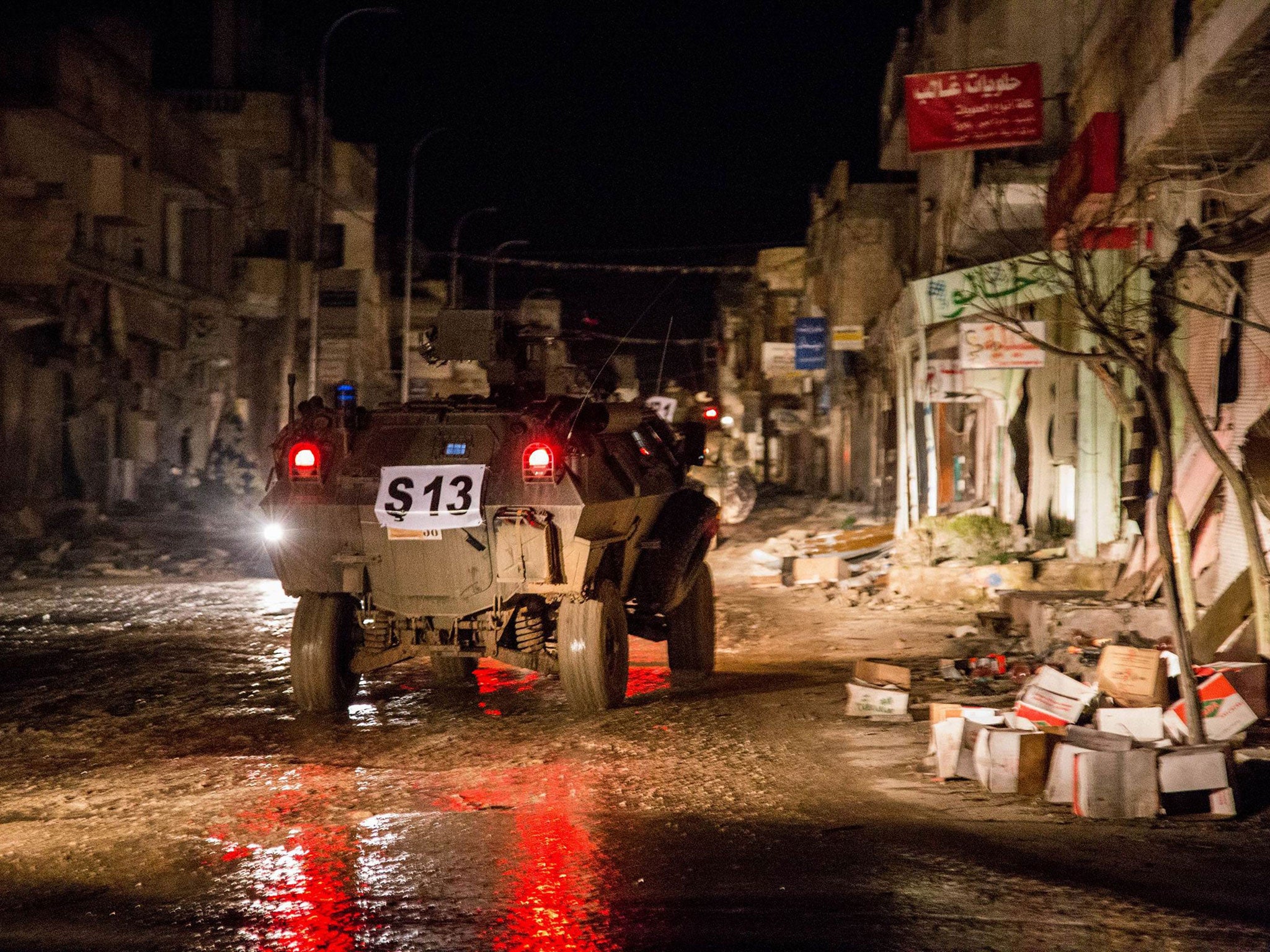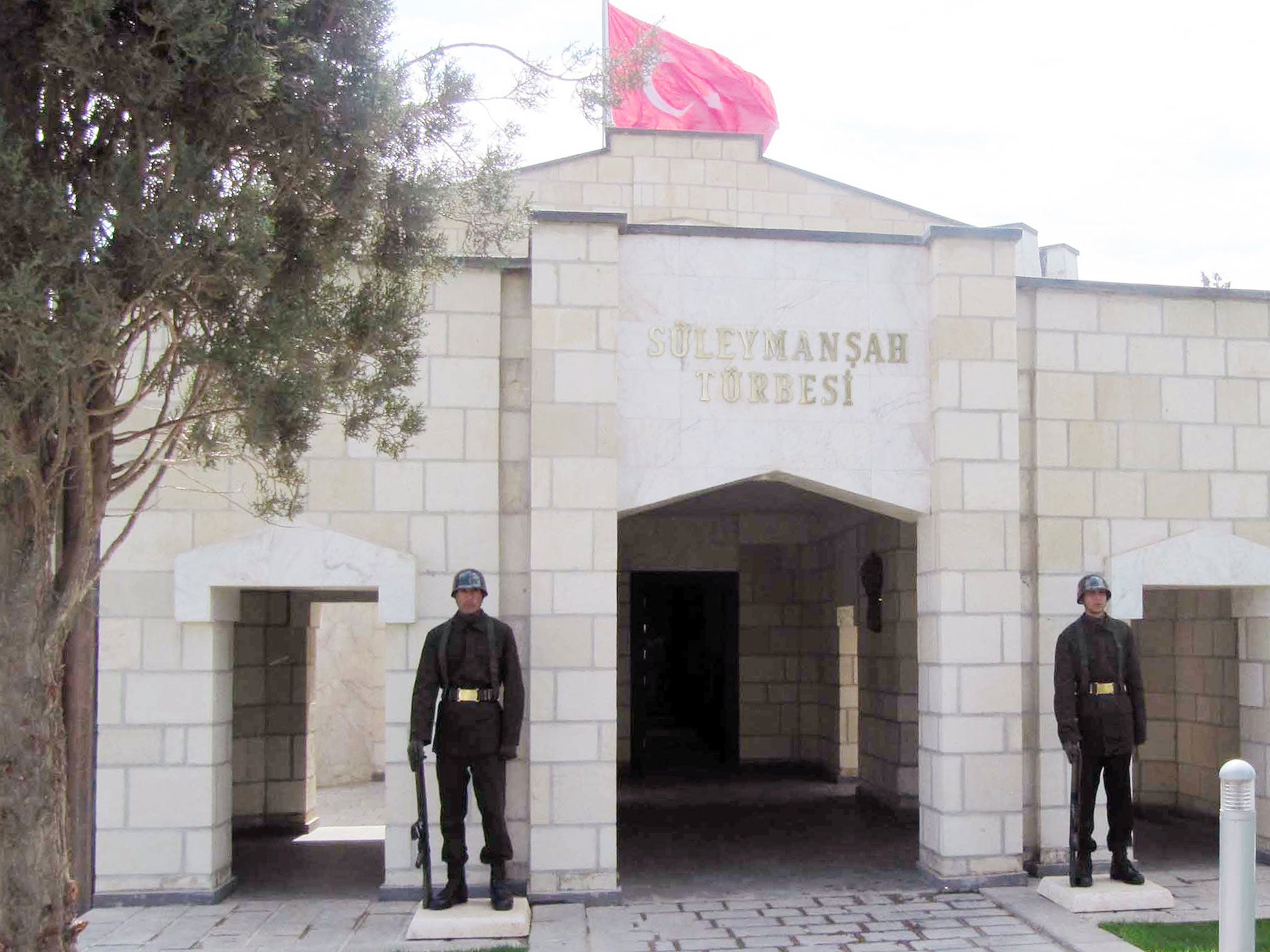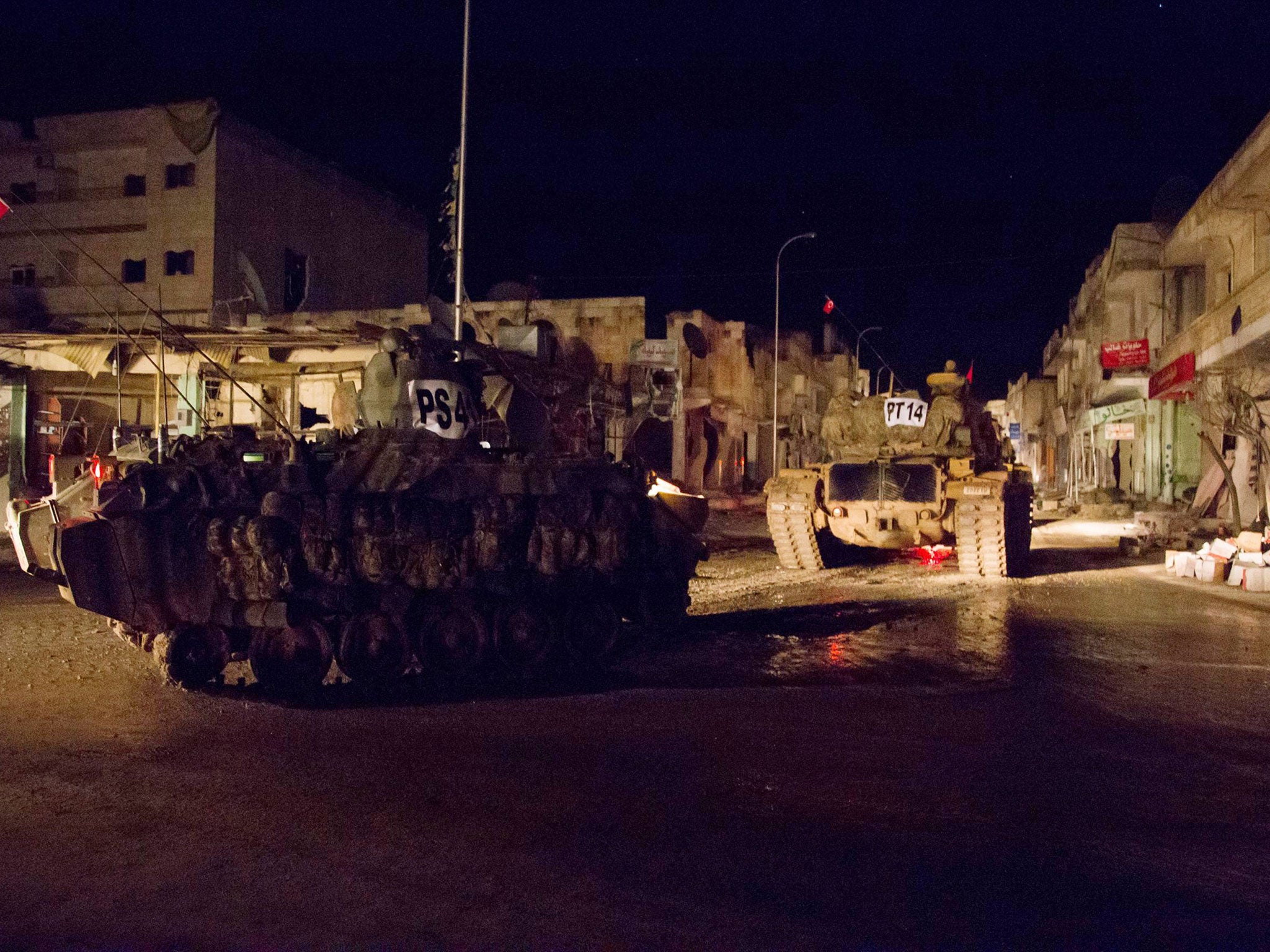Turkish army makes first land incursion into Syria to evacuate sacred burial site of Ottoman-era king besieged by Isis
'Successful operation' saw the controlled destruction of the ancient tomb of Suleyman Shah to prevent its use by 'Islamic State' militants

Your support helps us to tell the story
From reproductive rights to climate change to Big Tech, The Independent is on the ground when the story is developing. Whether it's investigating the financials of Elon Musk's pro-Trump PAC or producing our latest documentary, 'The A Word', which shines a light on the American women fighting for reproductive rights, we know how important it is to parse out the facts from the messaging.
At such a critical moment in US history, we need reporters on the ground. Your donation allows us to keep sending journalists to speak to both sides of the story.
The Independent is trusted by Americans across the entire political spectrum. And unlike many other quality news outlets, we choose not to lock Americans out of our reporting and analysis with paywalls. We believe quality journalism should be available to everyone, paid for by those who can afford it.
Your support makes all the difference.Tanks, drones and reconnaissance planes joined hundreds of Turkish soldiers on a night time raid into Isis-occupied Syria to evacuate the tomb of a revered Ottoman figure and rescue around 40 soldiers who had been guarding it.
Sweeping around 23 miles into the country they met no resistance as they reached the final resting place of Suleyman Shah, who lived from about 1178 to 1236 and was the grandfather of the founder of the Ottoman empire, Osman I. The Syrian government described the operation yesterday as an act of “flagrant aggression”, adding that Turkey had informed its Istanbul consulate about the operation, but had not waited for Syria’s agreement.
Suleyman’s tomb was relocated to the Esmesi region of Syria, where a Turkish flag was planted, and the mausoleum that had housed it was destroyed to prevent its use by Isis.
The Turkish Prime Minister Ahmet Davutoglu said the operation was carried out “to protect our spiritual values and the safety of our armed forces personnel”.


The 38 soldiers who had been guarding the tomb, which was made Turkish territory under a treaty signed with France in 1921, were also brought home. Normally, the detachment is rotated every six months but the last one had been trapped at the site for eight months by Isis fighters.
In March 2014, the group threatened to attack the site unless Turkish troops guarding the tomb were withdrawn in three days, but an attack did not take place. Isis’s strict Salafi interpretation of Islam deems the veneration of relics idolatrous and it has destroyed several tombs and mosques in Syria.
Mr Davutoglu, who has repeatedly said that Turkey would retaliate against any attack on the tomb, called the operation to remove it “extremely successful”, adding that it had not sought permission or assistance for the mission.
Instead, he said, it had informed allies in the coalition against Isis once the incursion began – the first by Turkish troops into Syria since the start of the civil war nearly four years ago.
Around 100 military vehicles, including 39 tanks, were involved along with 572 military personnel including special forces commandos. Fighter jets were on alert during the mission but did not need to be deployed, he explained.
No clashes took place during the operation although one soldier was killed in an accident, according to the Turkish military.
In its statement yesterday, Syria said the fact that Isis had not attacked the tomb “confirmed the depth of the ties between the Turkish government and this terrorist organisation”. Syria has long accused Turkey of supporting insurgent groups that have seized control of wide areas in the north and east of the country. Mr Davutoglu said the tomb would be returned to its previous location once conditions allowed.
Join our commenting forum
Join thought-provoking conversations, follow other Independent readers and see their replies
Comments